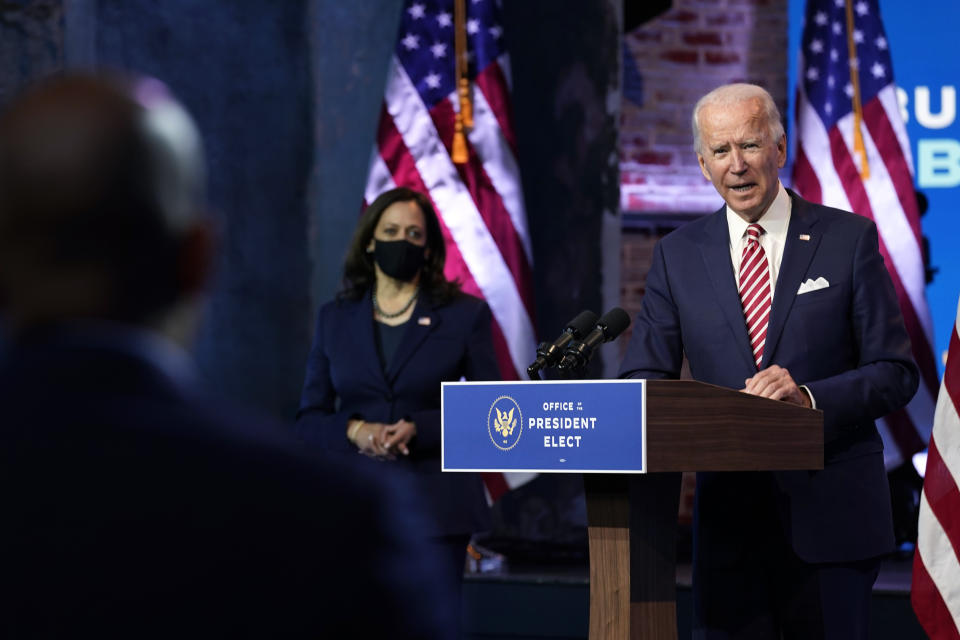‘You should be excited for a Biden presidency’ if you’re middle, lower income: WalletHub analyst
A Biden presidency will be financially beneficial if you’re middle- or lower-income, according to a WalletHub analysis of the President-elect’s policies. The benefits would come from favorable tax policies, tuition-free education, health care benefits, and more.
WalletHub’s senior analyst Jill Gonzalez says that people who identify as middle- or lower-income should be happy with a Biden presidency — at least when it comes to your finances.
“You should actually be excited for what a Biden presidency would look like, especially I think in light of coronavirus,” Gonzalez explained. “He's giving a few different types of tax credit, or at least that is his plan.”
According to the President-elect’s tax plan, Americans earning under $400,000 will not lose tax cuts that were first passed under the Tax Cuts and Jobs Act.
“The people that should be concerned are those that are in the 1.9%, that are making over $400,000,” Gonzalez said. She explained that this group of people will be charged a “slightly higher tax rate.”
“Not too much higher — about 0.2%,” she added.
But Americans can expect some more tax credits which might come particularly useful during the coronavirus pandemic.
The Biden tax plan aims to create a $5,000 tax credit for “informal” caregivers — family members and loved ones who provide long-term care to the elderly. And families with dependents will be able to claim $8,000 per child, with a cap of $16,000. The Child Tax credit — currently $2,000 — would be expanded to $3,000 for children ages 6 to 17.

“More and more people are doing [that] now, because we don't want to be as reliant as we were on nursing homes or other long term care facilities, happened during a pandemic in those situations,” Gonzalez said.
“So more elderly people are at home with loved ones,” she added. “So that's one huge plus I would think.”
When it comes to education, Gonzalez said Biden’s plans are also more beneficial to middle- and lower-income households.
“When it comes to public colleges and universities, it is his plan that if you are a family and your household makes under $125,000 annually, you would be attending a public university or college for free,” she explained. “Which means no student loans and a severe increase, in a good way, in terms of student loan debt moving forward.”
Currently, Americans owe nearly $1.7 trillion in what most experts have branded a “student debt crisis.”
Commitment to labor
Biden’s economic plan would also enact the Paycheck Fairness Act, increasing the minimum wage to $15.
It would also make short term compensation for employees who lost their jobs 100% federally funded.
Gonzalez explained that it would allow companies to furlough workers if necessary and then bring them back to the workplace, without getting rid of the job. It’s a program that has become vital during the coronavirus pandemic as nearly 710,000 Americans filed for unemployment benefits for the first time by the end of the first week of November.
“That's where President Biden elect would be focusing a lot of his labor commitment,” Gonzalez said.
Kristin Myers is a reporter at Yahoo Finance. Follow her on Twitter.
Read more:
Read the latest financial and business news from Yahoo Finance
Follow Yahoo Finance on Twitter, Facebook, Instagram, Flipboard, LinkedIn, YouTube, and reddit.

